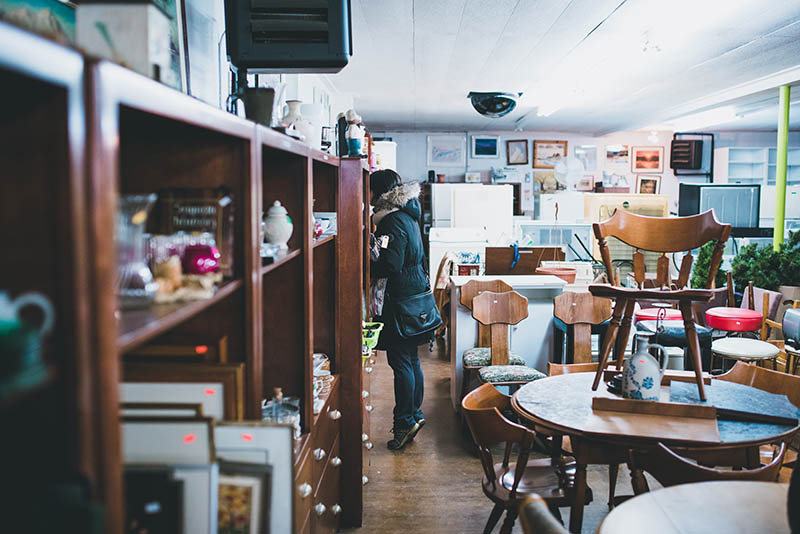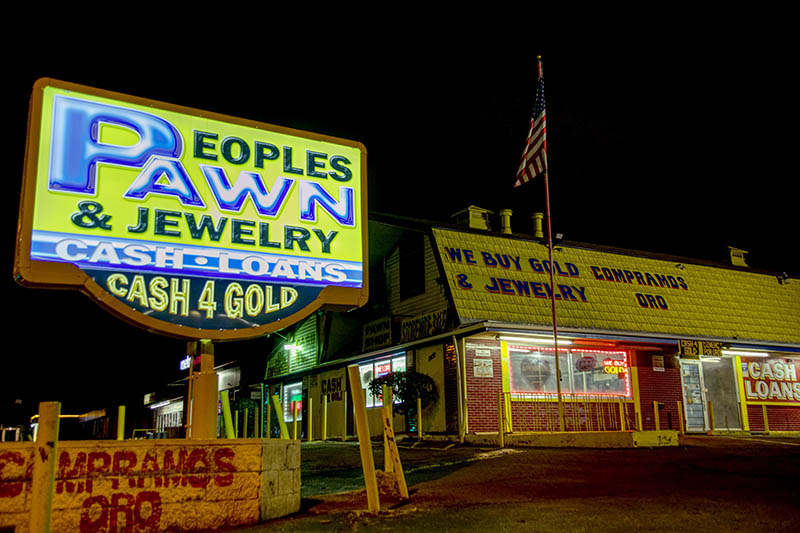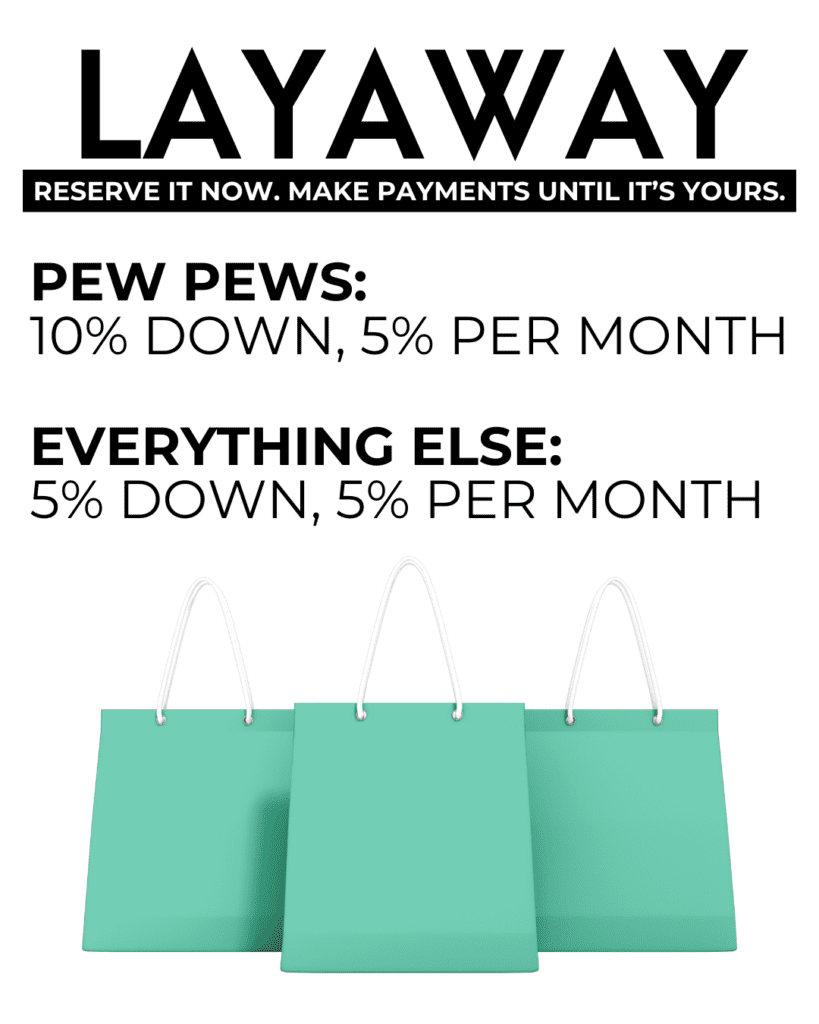Why buy Second-Hand Items
Let’s be honest, with the current economic situation it just makes sense to consider buying used items for anything that you need or want before looking at new products. Buying used, second-hand items is a great way to save money, especially if you find high-quality, well-taken care of items. From musical instruments to sporting goods to electronics, used items are not only economical but they can save you a pretty penny. Though it should be stated that there are some downsides to used goods, one being that they do not come with a warranty, another being that their lifespan can, and often is, shorter than new products. But knowing these minor risks, buying second-hand items is a good place to start when searching for new products.
On the flip side of that, selling items that you no longer use or need is a great way to make some extra cash. Most people have items of value lying around their house that is unused and they do not even know they could make good money on them. From an old guitar to broken gold, many of us disregard these things and never capitalize on their value.
There are many avenues to purchase or even sell used items. In this article, we will go into detail on why and how to use many of them, as well as how they compare to pawnshops.
Pawnshops – a high-level view
At its most basic level, pawnshops give out short-term, collateral-backed loans. This means that at its core, a pawn shop is a finance company. In other words, if you need fast cash, you can bring an item into a pawn shop, and for lack of a better term, pawn it. Specifically, you will be given a payback period and cash as a loan. When you bring the money back within the terms of the loan, the pawnshop will collect that money and interest back, and give you your item back. This is a great option for people who need quick money but only have items that they are not willing to part with. You can also bring in items and just sell it straight to a pawnshop without getting a loan. This works much like a pawn but instead, you give the pawnshop your item, they give you cash, and the deal is complete.
Another aspect of pawn shops is selling second-hand items, this could be items that were either sold to pawnshops or items that were loaned on but defaulted. Everyone has seen the show Pawn stars where customers come in to sell their items to Rick or Chumlee, where they haggle on a price, and the pawnshops pay a price and turn around and sell that item in their store. Pawnshops are the best places to start when looking for jewelry, sporting goods, tools, musical instruments, and more because these are items that are often pawned. As a musician, I traditionally have popped into pawnshops just to browse their inventory, since it is possible that you might stumble across a rare vintage synth that priced fair.
Types of second-hand shops and How They Differ
- Pawnshops vs Thrift Stores
- Pawnshops vs Consignment Stores
- Pawnshops vs Vintage Stores
- Pawnshops vs Antique Stores
- Pawnshops vs Flea Markets
- Pawnshops vs Garage Sales
- Pawnshops vs Online Marketplaces
The Difference Between a Pawn Shop and Thrift Stores
Thrift shops are common staples in all cities and mostly deal in either clothing or home goods. Another important fact about thrift shops is that they are usually run by a charity and thus are used to raise money for said organization. An example of this is Goodwill, which is both the thrift shop’s name and a nonprofit that helps people gain employment and job training. Unlike pawnshops, all thrift shops take in goods as donations rather than buying them from the public, in other words, you can take old clothing and home goods to a thrift shop where you give them to the shop, but you can use that donation as a tax write off. The best time to shop at a thrift shop is if you are looking for some clothing items like jackets, or home goods like a blender. Personally, I like to stop by thrift shops to look for cool wall art, since you often find unique and interesting pieces for good prices.

The Difference Between a Pawn Shop and Consignment Stores
The main goal of a consignment store is to sell items on behalf of other people–which is usually worded as, “selling on consignment.” This means that if you have an item you want to sell, such as a guitar, you bring it to a consignment store, they list it online or put it in their shop and when it sells, they take a cut and give you the remainder. With that said, there are some consignment stores that pay flat rates upfront but to avoid complications we will ignore that for this article. Working with consignment shops to sell items could be advantageous but most often you don’t get paid until the item sells, so that could be a major downside if you are looking for a quick cash out. On the shopping front, there aren’t that many consignment shops and often you cannot just stop by and browse a storefront. Modern consignment shops mostly sell on online platforms like eBay, Offerup, or Facebook marketplace so often times you may be buying from a consignment shop and not even know it. Probably the most popular example of a consignment shop is from “The 40 Year Old Virgin,” where the love interest in that film runs a consignment shop where she sells other people’s items on eBay.
The Difference Between a Pawn Shop and Vintage Stores
Vintage Shops may look like thrift shops but often have higher-end clothing and art, and generally, only take items that are 20 years or older. Another important factor to understand when considering vintage shops is that they often have a higher bar for what they take, meaning that they must be name-brand clothing items. A difference between a thrift shop and a vintage shop is that vintage shops are not storefronts to make money for nonprofits, rather they make money for their owners and employees–which to be clear, is not a bad thing, everyone has bills to pay and that is how this economy works. To wrap this up neatly, you can think of vintage shops and high-end thrift stores with better, but subsequently more expensive, items.
The Difference Between a Pawn Shop and Antique Stores
Antique shops mark a big divergence from pawn shops. The main good sold at an antique shop is, you guessed it, antiques, which is anything that is 100 years or older. By now you should see where vintage and antique differ, being that vintage is 20 to 100, and antique is 100 or older. The main items that survive that long, and thus are sold at antique stores are furniture, art, jewelry, silverware, or even jade, although it should be said that anything 100 years or older could make its way into an antique shop. It’s clear by now, that you should plan on buying or selling to an antique shop if the item you have or want, is 100 years or older. Antique shops also can acquire goods for their stores at estate sales, flea markets, and other third-party sellers. Pawnshops, most often, do not carry furniture, so this is the place to go when looking for those items as well.
The Difference Between a Pawn Shop and Flea Markets
Many people have heard of flea markets but many people do not know what they are, so in other words, they are large outdoor markets where goods, most often second-hand goods are sold. These are very close to swap meets, and the term is often used interchangeably, but swap meets traditionally are places to trade whereas flea markets only take cash during a sale. Another important distinction between flea markets and other second-hand stores is that dealers purchase booths to set up, much like farmers’ markets, so each flea market (or swap meet) has many dealers. There are not many limits to what could be sold at flea markets so these markets have a huge variety of things that could be on sale. Unlike other shops on this list though, dealers are not at these markets looking to purchase from the public so if you are looking to offload some products for extra cash you can steer clear of flea markets. The best time to check out flea markets is if you are looking for weird, quirky, or collectible items since oftentimes that is what is found there, for example, Tiki collectors very often frequent flea markets looking for mid-century tiki bar collectibles. Where flea markets really stand apart from other second-hand shops is that some allow soap makers, bakers, and other hand-made items to be sold there as well, meaning this is a good place to find truly unique and one-of-a-kind items.

The Difference Between a Pawn Shop and Garage/Yard/Estate Sales
Here is a type of second-hand dealer that we are all familiar with, garage and yard sales, and by extension, estate sales. These need little explanation, they are when people sell off their own personal belongings on their driveway, in their yard, or in their home. The main difference between garage sales and estate sales is that estate sales, sadly, generally refer to selling items of someone who was recently deceased (although it could be someone looking to move, those generally are still called garage sales). Yard sales, on the other hand, are just another term for garage sales, which also could go by the term, rummage sale, tag sale, or even moving sale. These sales never buy products because their sole purpose is to sell items to make more room, make extra money, or move. These are really good sales to frequent weekend mornings when you want to kill time and search for good deals. Garage sales also oftentimes offer very good prices because the owners of the products, most of the time, are more interested in getting rid of products than making money.
The Difference Between a Pawn Shop and Selling Apps/Marketplaces
These types of markets have blown up in the past couple of years, but of course, were made famous by CraigsList and eBay. Other huge players now are OfferUp, Facebook Marketplace, and Buya.com. The two main types of online marketplaces are, those that are locally based, ie. Craigslist or Offerup, and those that are online based and ship the products, such as ebay.com and Buya.com. These all have a major advantage over traditional shops though, and that is that you can search for whatever the product is that you are looking for, for example, let’s imagine that you want to find a Fender guitar, you can just type that into the search bar and be shown all relevant results. With that, these types of marketplaces are best for when you are looking for a very specific type of product. There are even niche online retailers like reveb.com which sells musical equipment and gear. These marketplaces do not purchase from the public, but instead, allow you to list your item yourself and sell it to the public. This has some advantages and disadvantages though, an advantage being that you get closer to second-hand list price (since there is no shop assuming the risk), a disadvantage being it could take longer to sell and takes coordination with strangers, which could, at times, even get dangerous.
Conclusion
To conclude, there are lots of reasons to shop at second-hand stores, and maybe an equal variety of places to shop to buy those second-hand goods. Although we may be biased, we always believe that a pawn shop is a good place to start, unless you are looking for clothing, because of the wide variety and willingness to make a deal. Another good reason is pawnshops are often running promotions such as 50% of jewelry, meaning you can stop by a pawnshop to get really good and really cheap jewelry (especially because all of our brokers are trained in spotting fake jewelry, so it is always real gold and real diamonds). Of course, it does depend on what specific items you are looking for, for example, if you need a cheap sports coat, thrift shops are the way to go, if you want some artwork or interesting home decor, a vintage shop may be the way to go. In turn, if you are looking for fast cash, a pawnshop is always the best option, but selling things on Offerup or Facebook marketplace may be a good move too. We hope this explains the differences, and similarities, between pawn shops and other second-hand shops but if not, always feel free to reach out to us through email, social media, or the contact page on this website.





